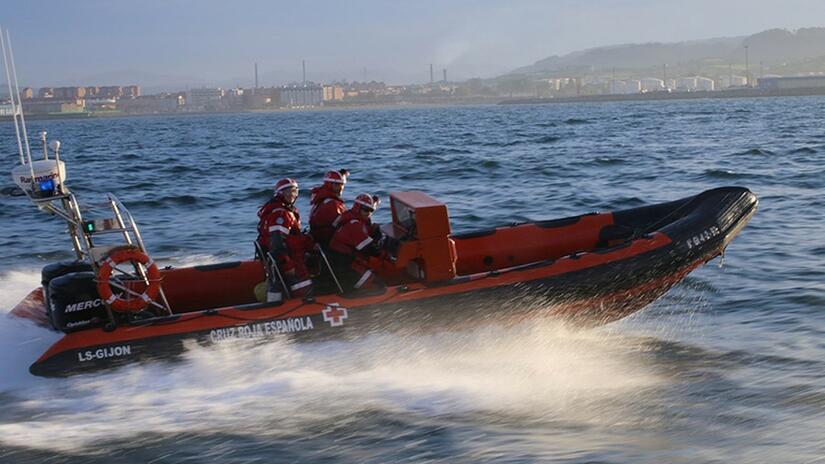“We have had cases of babies, sometimes just hours old, with the umbilical cord still attached, or children who were born in the boat and who would touch the mainland for the first time in our arms.”
Miguel Vela has been a Spanish Red Cross volunteer since 2009, witnessing horror and desperation on a regular basis. A trained nurse, he is currently part of the Immediate Response Team in Humanitarian Assistance to Migrants (ERIE) in the Canary Islands – something he combines with his job in a hospital and the 112 emergency service.
In 2020, more than 30,000 migrants arrived by sea to Spain, the highest number in 15 years. COVID-19 made the rescue operation even more complex.
“The COVID-19 emergency added the risk of infection, the discomfort of having to use protective equipment despite extremely hot temperatures, the frequent modification of protocols and the psychological and physical exhaustion after long working hours,” explained Miguel.
But he is aware of how privileged he is.
“I have always had the luxury of going back home to running water, electricity and food. In the meantime, people continue to risk their lives in the middle of the sea or have to quarantine in overcrowded settings. Not to mention the bodies that reach the coast or those who do not even manage to touch the mainland, human beings whom no one will ever be able to watch over.”
Miguel’s daily activity is intense, racing against the clock to save lives and help the most vulnerable. He is always on standby for a boat sighting. In such cases, he provides basic health and humanitarian aid to migrants upon disembarkation. His team does a first triage, taking those who need medical assistance to a nearby medical post. The rest of the migrants are given essential items including clothes, food and water.
Miguel is particularly touched by the children they’ve seen. “No person should go through this, least of all a child. We should be embarrassed as a society,” he denounced.
Working in such environment is never easy, but it’s been especially hard this last year.
“The COVID-19 pandemic has forced us to give 200% of ourselves without having a physical shoulder to lean on, struggling with uncertainty in the face of the unknown and with great fear,” said Miguel.
His plea? More humanity and solidarity with one another.
“To me, this crisis has been a parenthesis, a ‘stop’ in our lives. From one day to the next all our plans were disrupted, for a moment there seemed to be no distinction of social class, gender, ideals, northern or southern hemispheres... For once in history, we all seemed ONE fighting the same cause.
“I invite you to continue maintaining prevention measures. The vaccine is the vertex of the triangle that will help us fight the virus, but it is important that it reaches all corners of the world. It is our duty as a society to ensure that. And I think this crisis is also an opportunity to further value life, the closeness of our own, a hug, a kiss or a simple look.”
Article
World Radio Day: How radio helps keep communities healthy and safe
World Radio Day: How radio helps keep communities healthy and safe
| Article

